FREE Shipping on orders over $50
ARE YOUR KIDS TOO YOUNG TO TALK ABOUT RACE?

It's never too early to talk about race with your children. Parents often think they should avoid talking about race with young children because that would make them notice race and become racists. In fact, when adults are silent about race or use "colorblind" rhetoric, they actually reinforce racial prejudice in children. Starting at a very young age, children see patterns — who seems to live where; what kinds of homes they see as they ride or walk through different neighborhoods; who is the most desirable character in the movies they watch; who seems to have particular jobs or roles at the doctor's office, at school, at the grocery store; and so on — and try to assign "rules" to explain what they see. Adults' silence about these patterns and the structural racism that causes them, combined with the false but ubiquitous "American Dream" narrative that everyone can achieve anything that they want through hard work, results in children concluding that the patterns they see "must have been caused by meaningful inherent differences between groups." In other words, young children infer that the racial inequities they see are natural and justified. So despite good intentions, when we fail to talk openly with our children about racial inequity in our society, we are in fact contributing to the development of their racial biases, which studies show are already in place.” (Dr. Erin Winkler, 2017)
(Photos by @Pretty_good_design)
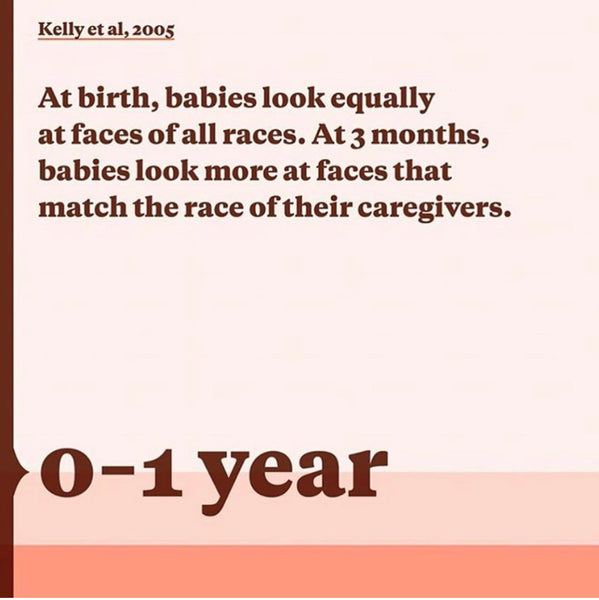
At birth, babies look equally at faces of all races.At 3 months, babies look more at faces that match the race of their caregivers.
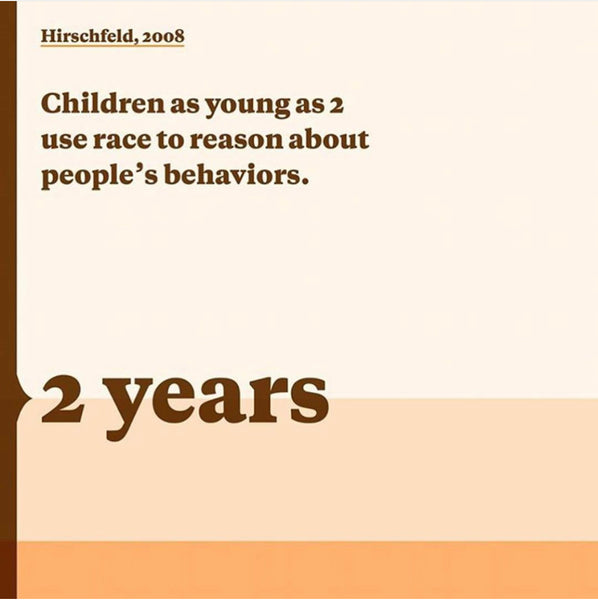
Children as young as 2 use race to reason about people's behavior.
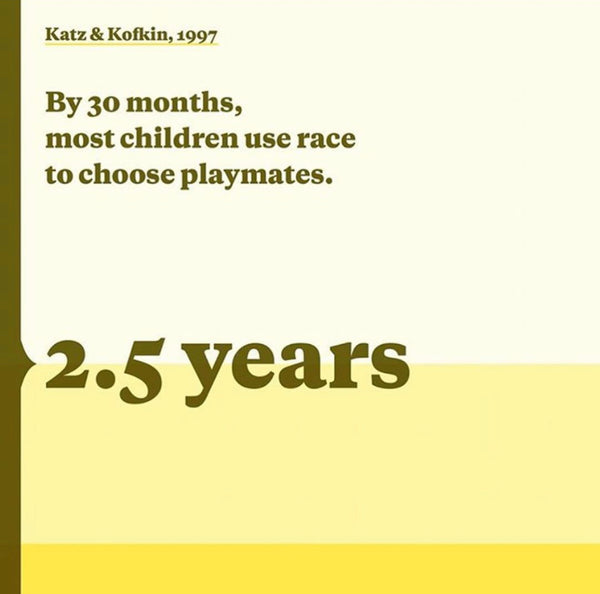
by 30 months, most children use race to choose playmates.
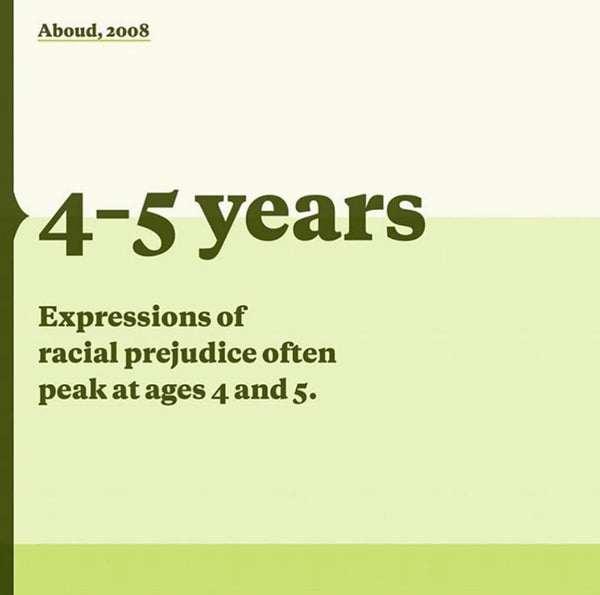
Expressions of racial prejudice oftne peak at ages 4 and 5.
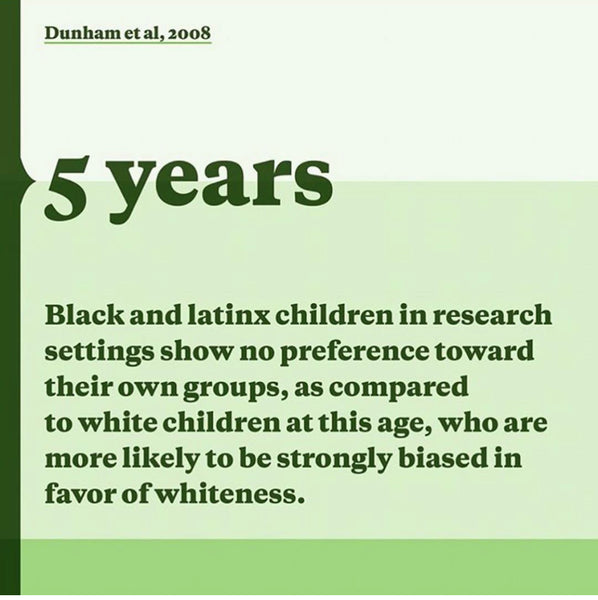
Black and latino children in research setting show no preference toward their own groups, as compared to white children at this age, who are more likely to be strongly biases in favor of whiteness.
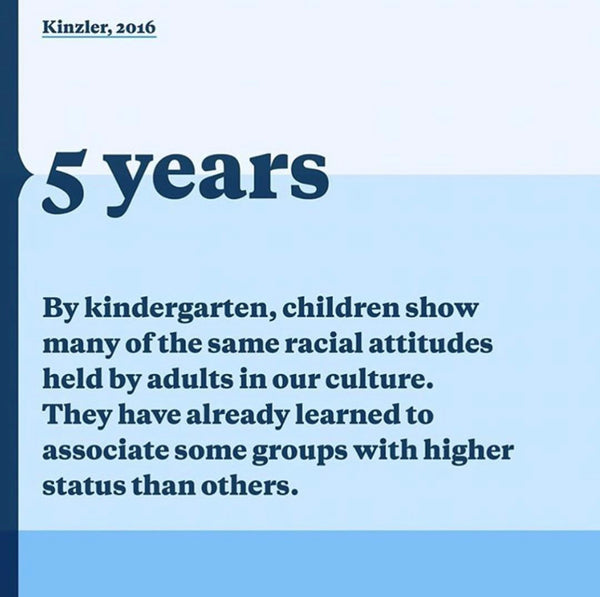
By kindergarten, children show many of the same racial attitudes held by adults in our culture. They have already learned to associate some groups with higher status that others.
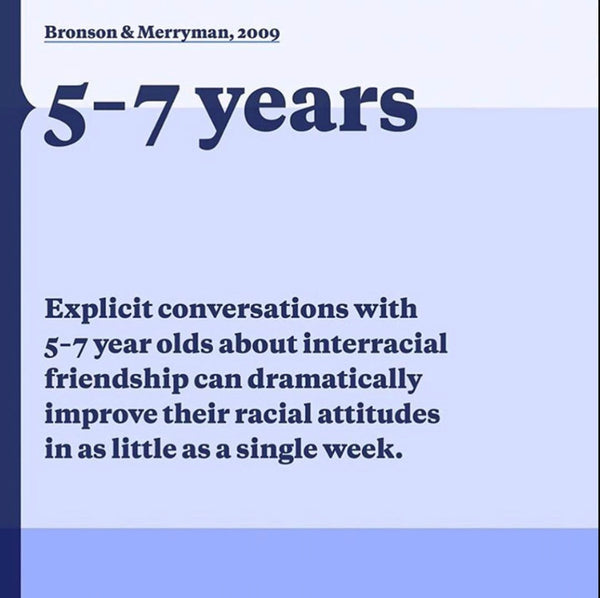
Explicit conversations with 5-7 year olds about interracial friendship can dramatically improve their racial attitudes in as little as a single week.
Recourses The Counsios Kid


